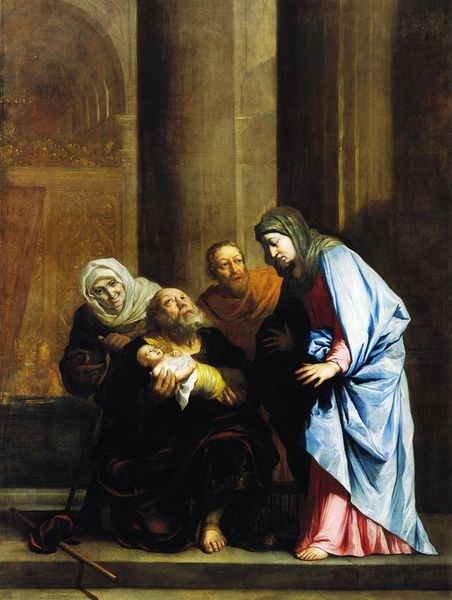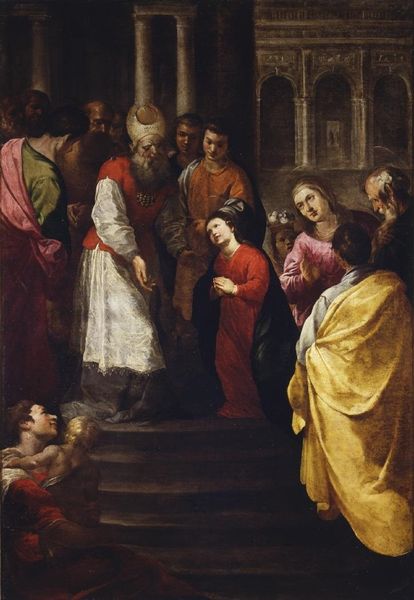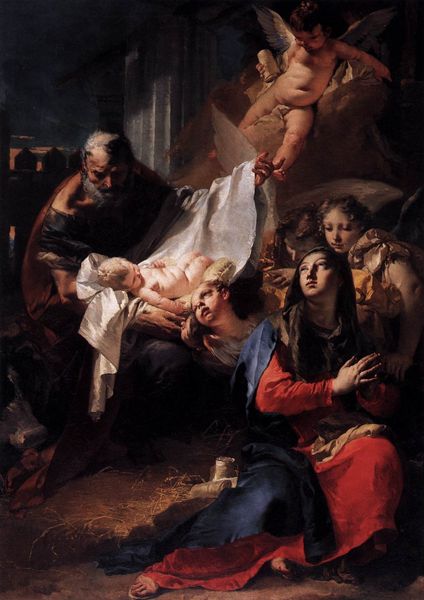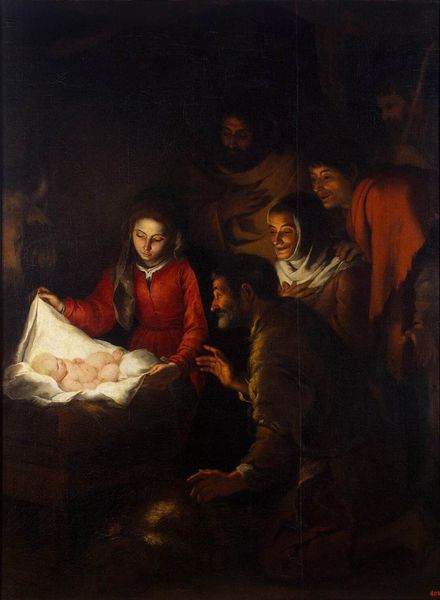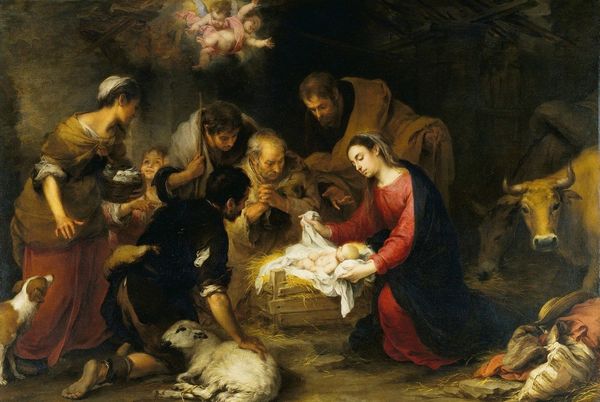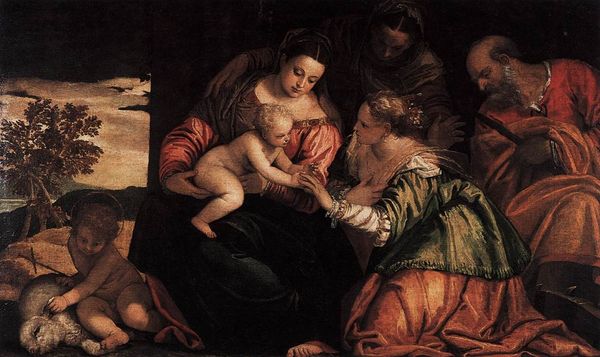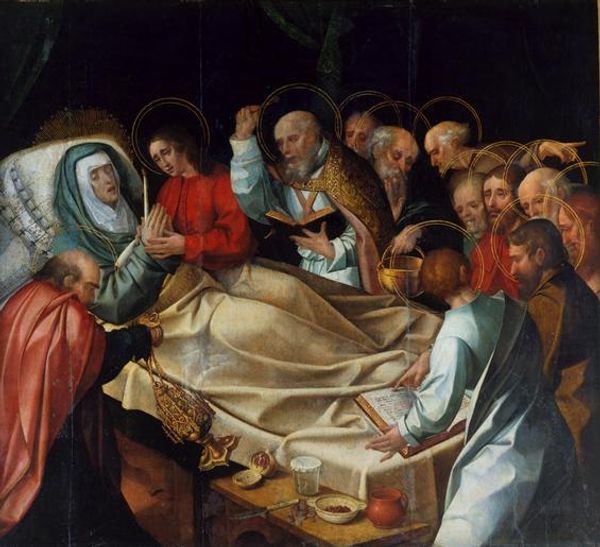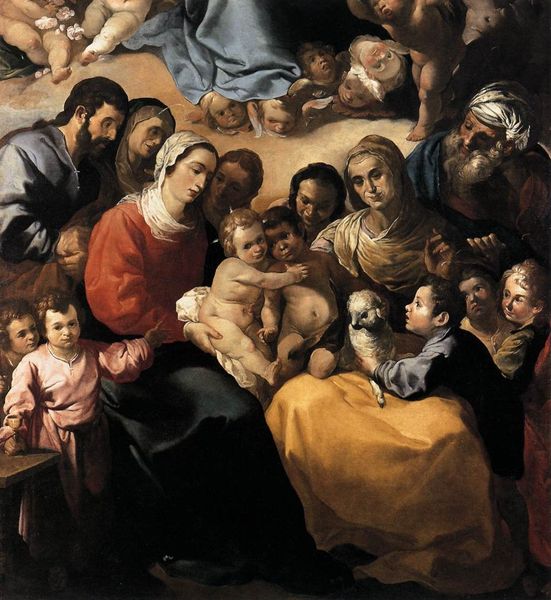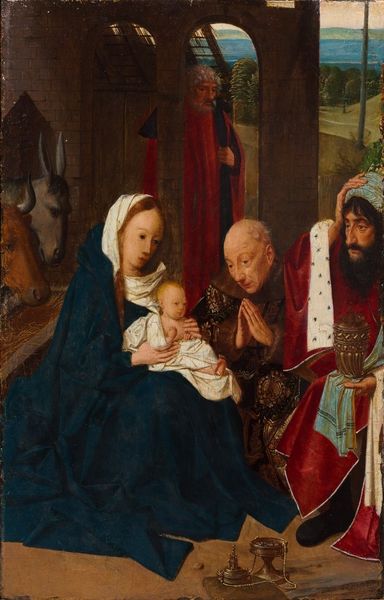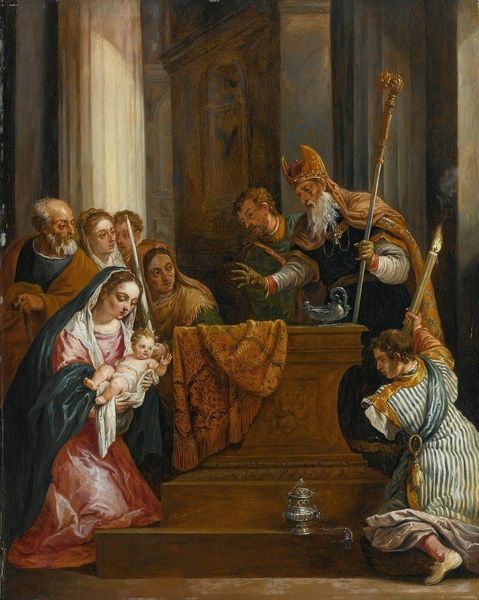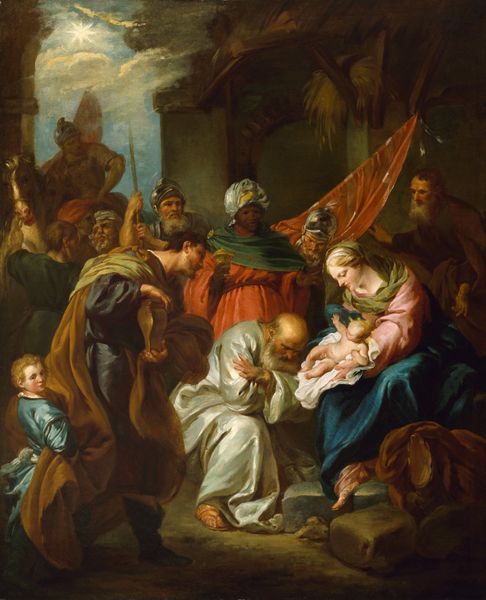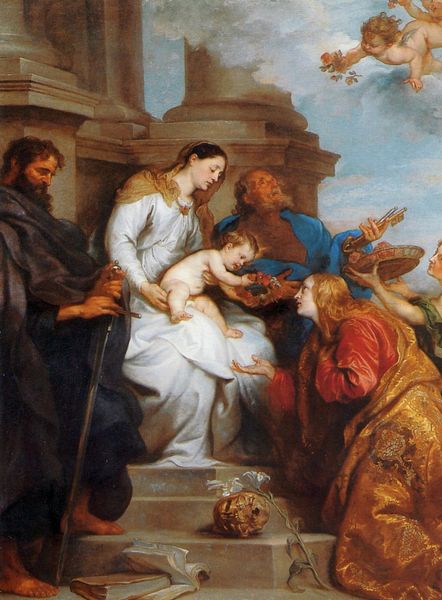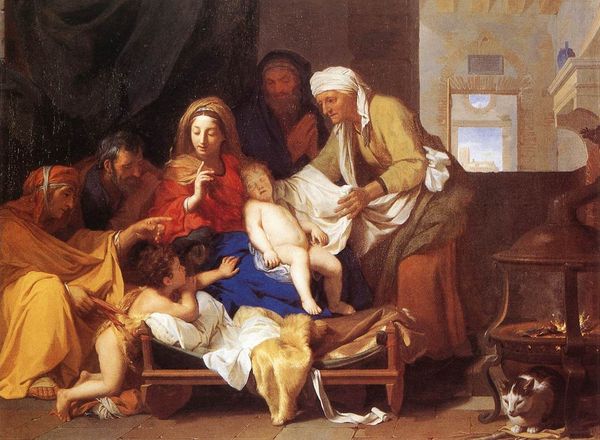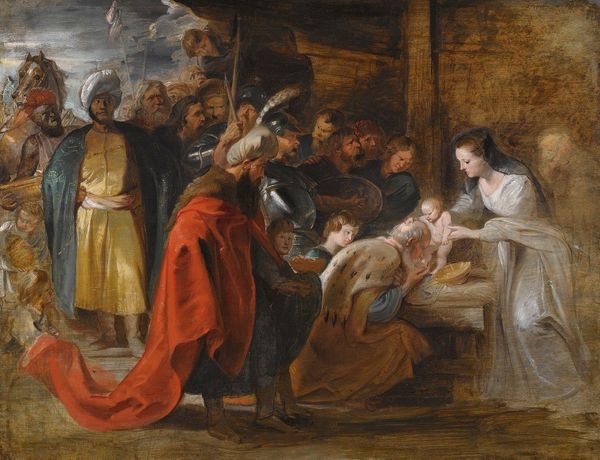
painting, oil-paint
#
portrait
#
gouache
#
narrative-art
#
baroque
#
painting
#
oil-paint
#
figuration
#
oil painting
#
group-portraits
#
facial painting
#
history-painting
Copyright: Public Domain: Artvee
Bartolomé Estebán Murillo painted "Adoration of the Magi" in the 17th century, a time of immense religious and political power. The work offers a glimpse into the spiritual life of Baroque Spain, reflecting the period's intense Catholic devotion. Murillo presents a scene where earthly royalty bows before divine humility. The three magi, traditionally interpreted as representatives of different continents, pay homage to the newborn Christ. The African magus is a striking figure, challenging the typical European-centric view of the era, yet the depiction still raises questions about exoticism. Notably, Murillo includes onlookers, especially children, drawing us into the intimate and emotional moment. The Virgin Mary's gentle gaze suggests a mother's tender concern, an emotional register that shifts the visual narrative away from rigid theological interpretations. Instead, we are presented with a scene of human connection. Murillo subtly engages with the socio-political dynamics of his time while inviting a sense of personal connection to the divine. The painting encourages us to consider the power of faith, its capacity for universal embrace, and its complex relationship with earthly power.
Comments
No comments
Be the first to comment and join the conversation on the ultimate creative platform.
